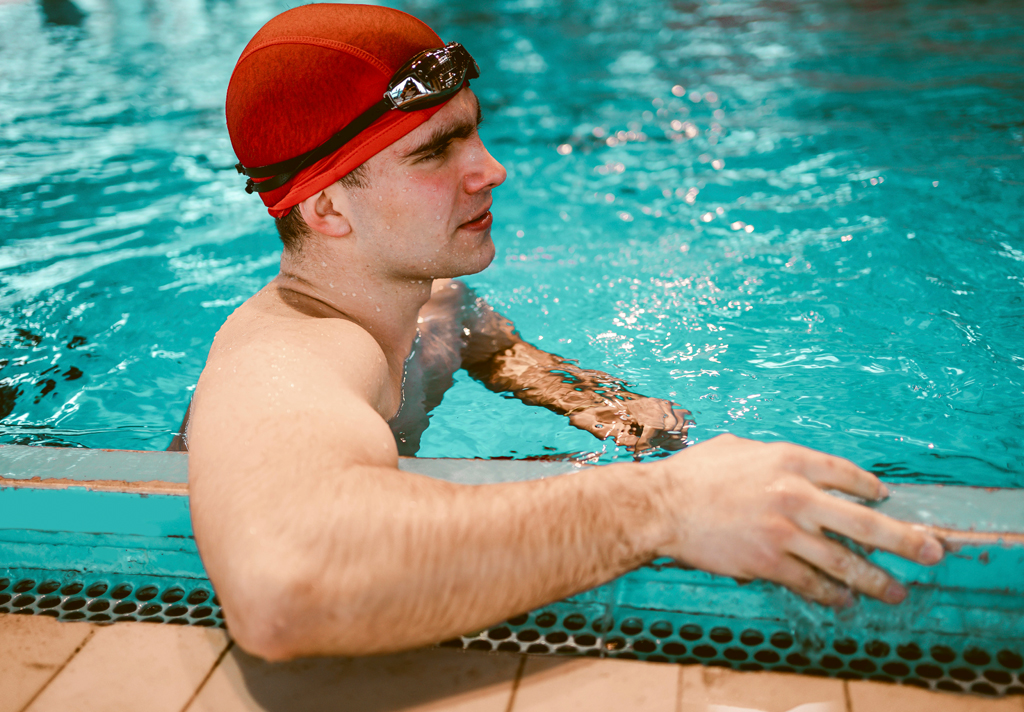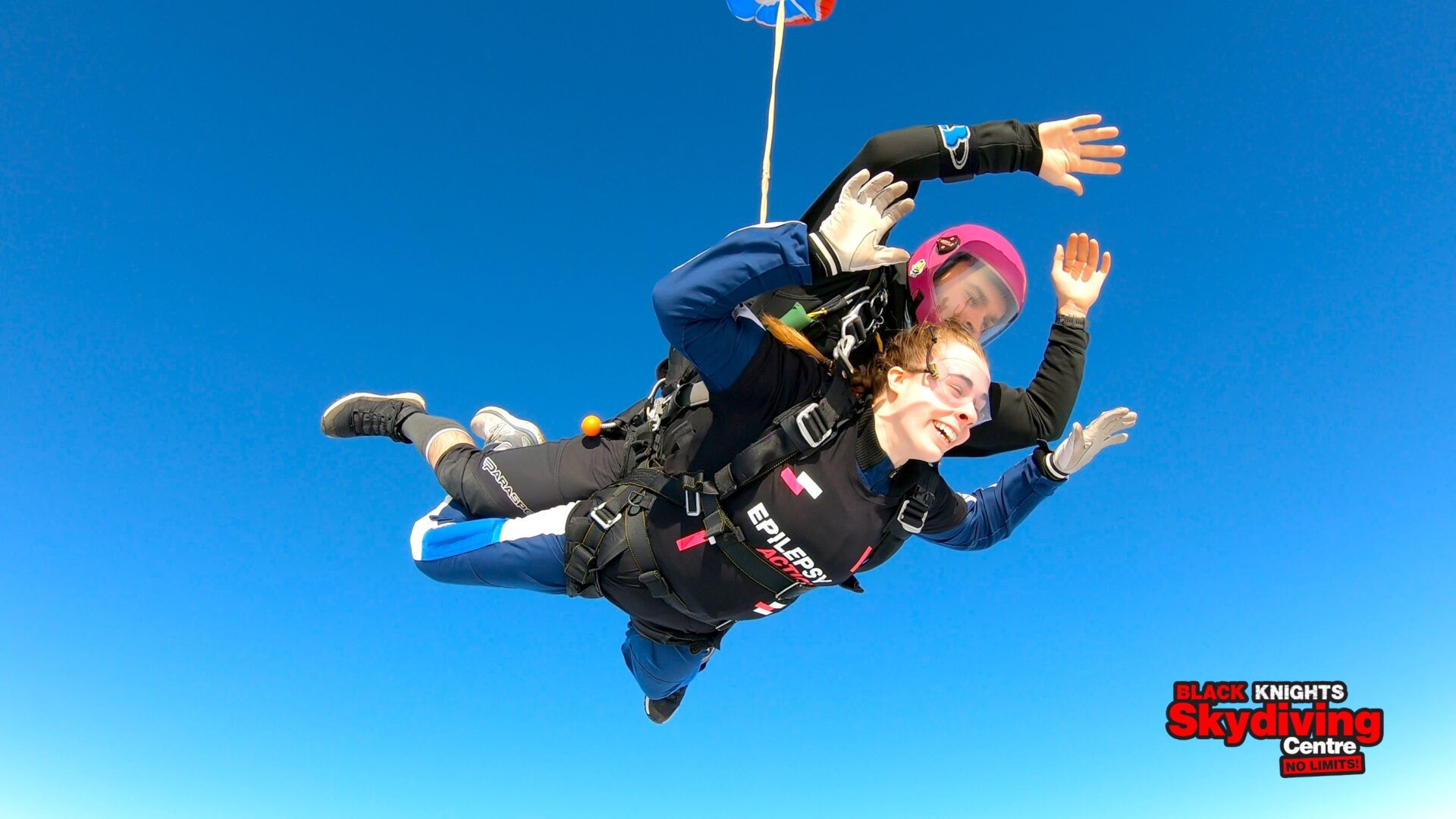Jump straight in
Key facts
- There are things you can do to reduce any risks and make activities safer for you
- Some sport activities have a governing body and rules around safety and medical conditions
- You may not need to take more safety precautions than anyone else if your seizures are completely controlled
- You may not need to tell anyone about your condition if it is unlikely to affect your safety or anyone else’s. But telling those around may be a good idea, just in case you need help
- We have some safety check questions to help you think out how to make an activity safer
Can I take part in sport, exercise, and leisure activities?
Being active and exercising can have health and wellbeing benefits for us all. But some people worry if it’s safe to take part in exercise, sport, or leisure activities with epilepsy.
Some people say when they are active they are less likely to have seizures. For others with epilepsy, exercising or taking part in sport and leisure activities can improve their symptoms.
With the right support and safety precautions, there’s no reason why you can’t take part in most activities.
The equality laws in the UK protect you from being treated unfairly because you have epilepsy. This includes access to sport and leisure activities.
Some sport activities have a governing body and rules around safety and medical conditions. We give information about regulations we know about on this webpage.
Some people feel more comfortable taking part in group activities just for people with disabilities. The NHS website has a link to find disability sports and classes near you.
Are there any things I need to avoid?
You may not need to take any more safety steps than anyone else if your seizures are completely controlled. Still, it’s always a good idea to follow the rules and recommendations around safety and equipment.
A very small number of people with epilepsy find that doing strenuous exercise increases their risk of having seizures.

How do I decide whether an activity is safe?
Many activities carry some risks, even if you do not have epilepsy. But people still do these activities. Like anyone, you might decide that the benefits of doing something outweigh the risks.
You can lower any risks related to an activity by doing a safety check and putting some safety measures in place.
You can check if there are any rules for your sport or activity below.
Some people may use the driving rules for epilepsy as a guide to help decide how safe they feel doing any particular activity. For example, you are allowed to drive if you have tonic-clonic seizures and have been seizure free for a year. On that basis, you may feel more comfortable doing certain activities.
Epilepsy Action has some safety check questions to help you work out how to make an activity safer.
You could also talk to your doctor or epilepsy specialist nurse to help you decide if something is safe enough for you.
When should I exercise?
Avoid exercising during times that you know may trigger a seizure, if possible. For example, try to avoid exercising soon after waking up if you tend to have seizures around that time. Or you might avoid exercising if you didn’t sleep well the night before.
Your doctor or epilepsy nurse can give you more advice.
Should I tell people about my epilepsy?
You may not need to tell anyone about your epilepsy if your condition is unlikely to affect your safety or anyone else’s.
Some people may feel more comfortable telling the people around them about their epilepsy. For example, you may want to tell the person leading a group activity. This may help you feel more confident in case you need any help.
If you are joining a club or doing a group activity, you could share information such as:
Our CARE video explains what to do if someone has a tonic-clonic seizure.
You may need to complete a medical form to take part in some activities, such as club sports. The organiser should only use this information to do a risk assessment and, if needed, make any reasonable adjustments.
If your club or group needs to do a risk assessment and make reasonable adjustments they should do these with you, not for you.
If you feel you are being unfairly stopped from taking part in an activity because of your epilepsy, check our information on epilepsy and your rights.
You can check any activity that’s not included on the list below by looking up their governing body or contact our helpline.
Got any questions?
Our expert advisors can help you with any questions you might have about leisure activities or anything else related to living with epilepsy.
When you’re out and about
You may want to think about wearing medical ID if you’re doing activities outside and on your own, such as jogging or rambling. It may also be a good idea to have an alarm that uses a tracking or location device. The device can alert someone if you are having a seizure and tell them where you are, just in case.
Epilepsy Action has more information on safety when you’re out and about
Information for club and group organisers
If you run a sports, exercise or leisure activity you may have people with epilepsy taking part. If so, we have lots of information to help you support them to take part safely. This includes:
- What epilepsy is
- Types of seizures
- How to perform first aid
- Doing health and safety risk assessments
Try to remember that everyone with epilepsy is different. So it is important to talk to the person about how their condition affects them and what they think you can do to support them.
Epilepsy training
We have a range of training options to help businesses, charities and other organisations support people with epilepsy in professional environments.
Sports, leisure and activities
- Boxing
- Climbing and bouldering
- Cycling
- Extreme sports
- Fishing
- Flying a private plane
- Horse riding
- Jacuzzis
- Martial arts
- Running and jogging
- Sauna and steam rooms
- Scuba diving
- Skiing
- Sky diving (parachuting)
- Swimming
- Team sports (including football, rugby, cricket and netball)
- Theme parks
- Using the gym
- Walking
- Water sports
More information on living with epilepsy

Up for a challenge?
Be a hero and raise money for the thousands of people and families affected by epilepsy.



